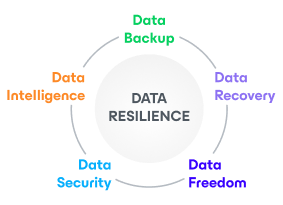Why Veeam Kasten + Nutanix Is a Future-Ready Move for Post-VMware Modernization
Traditional type-one hypervisor customers are at a crossroads. According to a June 2025 survey by Rimini Street, 98% of organizations that currently use VMware are either actively exploring or have already adopted alternative platforms in response to evolving pricing, support models, and long-term uncertainty.
In a recent article written by Nutanix for The Register, the company introduces two distinct types of customers who are navigating this transition. The first is modernizers, who are eager to embrace cloud-native and AI-ready platforms. The second is gradualists, who opt for ... Read more
